Intermarkets' Privacy Policy
Donate to Ace of Spades HQ!
aceofspadeshq at gee mail.com
Buck:
buck.throckmorton at protonmail.com
CBD:
cbd at cutjibnewsletter.com
joe mannix:
mannix2024 at proton.me
MisHum:
petmorons at gee mail.com
J.J. Sefton:
sefton at cutjibnewsletter.com
Trump SOTU Thread 2: "How Do You Not Stand for That?"
Trump's State of the Union Address
Pre-SOTU Cafe
Quick Hits
Trump Will Focus on the Economy and Affordability in Tonight's SOTU
Nicole Shananan Commissions Movie Script to Lampoon the Establishment's Unhinged Response to Covid, to be Called "The Rash"
Tucker Carlson: Jews Should be Forced to Undergo DNA Testing to Prove If They're Really Jews
Hell Freezes Over: NYT Admits That Trans "Science" Was Heavily Politicized and Distorted by Prejudice
Killer of Caltech Astrophysicist Was Let Out of Jail by Leftwing Judge, Citing California's "Unnecessary Prosecutions" Law
Jim Sunk New Dawn 2025
Jewells45 2025
Bandersnatch 2024
GnuBreed 2024
Captain Hate 2023
moon_over_vermont 2023
westminsterdogshow 2023
Ann Wilson(Empire1) 2022
Dave In Texas 2022
Jesse in D.C. 2022
OregonMuse 2022
redc1c4 2021
Tami 2021
Chavez the Hugo 2020
Ibguy 2020
Rickl 2019
Joffen 2014
maildrop62 at proton dot me
Saturday Evening Movie Thread 03-09-2018 [Hosted By: TheJamesMadison]
Best of 2018
So, I should have done this last time, but I just plum forgot. So, here it is. They leave the most important awards for last, so it makes sense that the AoSHQ award for Best Picture be the last one handed out for 2018. I took your nominations and took the top five. You vote. Last year it was Dunkirk, who will win this year?
And just as a note, I removed my own opinions from consideration. I would have probably included Annihilation, but since no one else either liked it or saw it, it stays off.
Auteurs
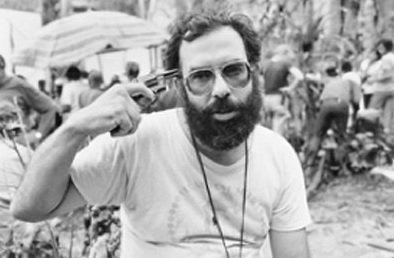
Months ago, I was commenting in a weekday thread and the conversation, as it often does when I'm involved, turned to movies. A commenter (I've honestly forgotten which) took a small tangent against Auteur Theory. His point was that because the Redux Cut of Apocalypse Now was, in his opinion, a lesser film than the original cut, then it disproved Auteur Theory altogether.
Because the comment was a bit of a tangent of the conversation, I never took it up and we all moved on (as is our wont), but the comment stuck with me for a while. So, here is my response.
History
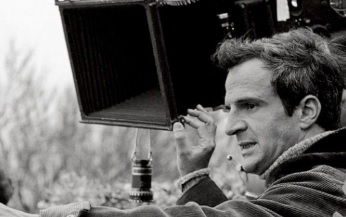
Auteur Theory began in German film circles but was popularized by the French film magazine, Cahiers du Cinema in an essay by the critic (and future director) Francois Truffaut called "A Certain Tendency of the French Cinema".
It's an interesting read. The first half or so is actually a harangue against a pair of French screenwriters that Truffaut saw as intentionally undermining the points and themes of novels they were adapting. The second half is about director/screenwriters and how their efforts are generally superior than the works described in the second half. Reading through it recently, it was amazing to see how few of the films listed I had even heard of, much less knew. Truffaut lists dozens of films made in France from the late 40s to the earliest of the 50s, and I recognized about a third of the names, most of which were used in support of people like Jacques Tati and Henri-Georges Clouzot.
Truffaut's actual point was that the artists in the medium of cinema were the ones doing the directing of personal works, often functioning as writers as well.
Definitions
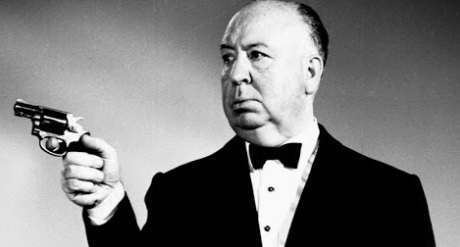
I don't think of auteur theory in the same way that Truffaut did. In fact, the general definition has morphed quite a bit. Here's how Britannica defines it: "Auteur Theory holds that the director, who oversees all audio and visual elements of the motion picture, is more to be considered the "author" of the movie than is the writer of the screenplay."
Another way to say that (and my definition) is: "The director, more than any other individual contributor on a film, has a greater claim to primary authorship of the film than anyone else involved."
In both of these modern definitions, there's no assertion that the director is always right or omniscient or all-powerful. Just that the director, more than the screenwriter, editor, actors, or producers is more responsible for the overall artistic merit of any given film.
That, of course, is a general rule. I can think of certain exceptions, the biggest and most recent would probably be the Marvel films where the producer, Kevin Feige, seems to control each production more than any of the directors (which is one rumored reason why Edgar Wright left Ant-Man). He functions more like an executive producer and showrunner on a television show than a producer on a film.
Sources of Confusion
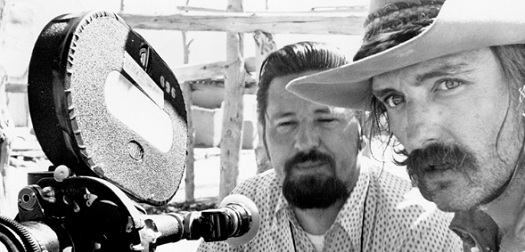
I think the confusion around the idea of Auteur Theory comes from the New Hollywood.
In the late 60s and early 70s, Hollywood was in crisis. They were producing large epics and extravagant musicals, but nothing was really making much money. Bonnie and Clyde began studios thinking in a new way with its embrace of violence. Then came a little movie called Easy Rider. Made dirt cheap by Dennis Hopper and starring Jack Nicholson and Peter Fonda (whose father, Henry, walked out of the screening confused), the movie was a huge success with college students and made significantly more than its budget. Movie studios, as they always do when they see a success, immediately began to imitate it.
From 1969 through to the late 70s, studios hired and shoveled money at young directors who could make movies for cheap that would, hopefully, appeal to the youth who weren't going to see the latest disaster movie. In this era we got movies like Five Easy Pieces, The Last Picture Show, Badlands, and The Godfather. These were movies where the studios stepped back and released a certain amount of control to let these snot-nosed kids from the film departments like George Lucas, Francis Ford Coppola, and Brian de Palma.
This very conscious business and process move on the part of the American cinema apparatus became, in many minds, the manifestation of Auteur Theory. Studios seemed to embrace it, giving directors more power and money over the years until it ultimately collapsed. Bad bets were bound to happen, but when the studios were spending only a million dollars on a movie, if it failed they wouldn't hurt that much. Letting Michael Cimino go way over budget on the ponderous Heaven's Gate ended a studio and marked the end of the rest of Hollywood's enamoring of directors.
However, the cat was out of the bag. The studio system wasn't completely taking over any time soon. Martin Scorsese kept making his movies through to this day (to the point that Netflix has given him more than $100 million for his latest, The Irishman). Brian de Palma produced his own distinctive films until he made himself irrelevant through a series of bad films (like Mission to Mars).
Application
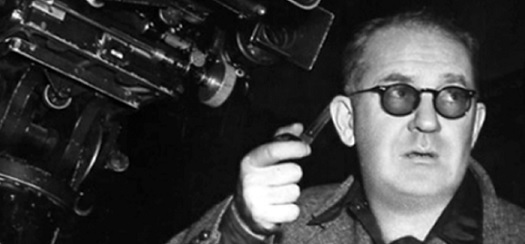
As a movie goer, what's the point of all this? Is it just a giant academic exercise that leads to no greater appreciation of movies?
I would argue, that as someone who is interested in exploring films, embracing Auteur Theory, in my limited form, is a helpful guide to the vast ocean that is cinema. It's not about living inside a box and arguing with people about how this or that movie must or must not be great because of whether a "great" director was in charge of the production. It's about finding those guideposts across the history of film.
Across the world, moviemakers produce thousands of movies a year. There are hundreds of thousands of movies dating back to the earliest years of the silent era. How do you navigate that? Do you just start at the beginning and go forward? Do you just give up and watch the latest blockbuster?
Or, do you hear about this guy Truffaut. He was a French film critic who decided that the French cinema was too moribund overall that he made his own movie, The 400 Blows. Seeing that and, hopefully, enjoying it because of its greatness, you ask, "What else is there like this?" So you find other French directors from that era. You find Clouzot and Tati, but also Godard, Demy, and Melville.
That Jean-Pierre Melville guy, though, he was interesting. He's both in and out of the French New Wave, and he was heavily inspired by American gangster movies of the 30s. So, after a quality screening of La Cercle Rouge, you decide to check out something like Howard Hawkes' Scarface, and then realize that this Howard Hawks guy knew what he was doing too. So, you take the next logical step and start exploring his filmography until you get to Red River and some unknown actor named John Wayne.
You realize that another famous director made John Wayne famous, this guy named John Ford, so you find The Searchers. Loving that (as you must being a good American), you guy further in, finding The Man who Shot Liberty Valance and Stagecoach.
That journey began with Francois Truffaut's semi-autobiographical film about him as a pre-teen in Paris and ended with John Wayne in a stagecoach flying through Apache territory.
Does this mean that someone like John Ford couldn't make a bad movie? Or Alfred Hitchcock? Or Francis Ford Coppola?
Of course not. These men were (and are) artists, but still men. They were not perfect, or unassailable, or gods. Just men with a camera.
Watching It All
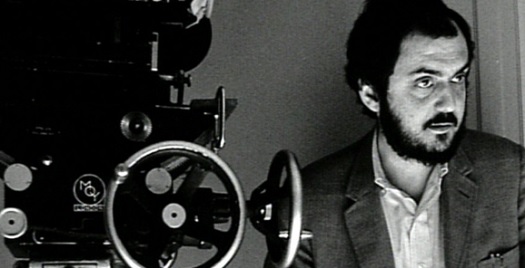
My mother bought me the Ingmar Bergman box set from the Criterion Collection for Christmas (it was out of stock and came in early February), and I've been going through the entire set at the pace of about one movie a week. I'll have more thoughts on the entire experience later, but it keeps to the forefront when, months back, I watched all twelve of Stanley Kubrick's films in about a three week period.
What was most interesting to me about the experience as a whole was how much it humanized Kubrick to me. Without that concentrated experience, my view of the director was heavily skewed by those of his that were my favorite (2001 and Barry Lyndon), but watching all twelve so quickly removed Kubrick from the pantheon and back down to earth. I consider about half the man's filmography to be great, but the rest ranges from good to very good. I knew that all going in, but to contrast something like 2001 with A Clockwork Orange (a movie I consider to be very good) one night after the next was illuminating. The man who had made what I consider to be one of the greatest films of all time followed that up with a movie that largely succeeds, but has issues.
Stanley Kubrick was a great artist, but he was still only a man. I've plucked him from the stars and placed him back on earth, and I find it much more comforting that he's there. It means that to become a great artist may be incredibly difficult, but it doesn't remove you from the human experience, even just filtered through the art itself.
Movies of Today
Opening in Theaters:
Captain Marvel
Next in my Netflix Queue:
Here Comes Mr. Jordan
Movies I Saw This Fortnight:
The Babe (Netflix Rating 1/5 | Quality Rating 0.5/4) Full Review Poster blurb: "I don't know if the Babe deserved any better, but I do think the movie going public certainly did." [Netflix DVD]
1776 (Netflix Rating 5/5 | Quality Rating 4/4) Full Review "It navigated its different tones deftly, provided enough context to get a solid grasp of the overall conflict (in musical form…read an actual history book if you want to learn history), and ended rather perfectly." ["Library"]
Murder Party (Netflix Rating 5/5 | Quality Rating 4/4) Full Review "It's a fun movie in its own right, but it's also an interesting first look at a (still) promising young director." [Netflix Instant]
Summer Interlude (Netflix Rating 5/5 | Quality Rating 3.5/4) Full Review "It's a gentle and quiet film that evokes lost youth and innocence in such a tender and tragic way. It's a wonderful little film." [Personal Collection]
Summer with Monika (Netflix Rating 5/5 | Quality Rating 4/4) Full Review "Monika is no heroine. She's selfish and placed her own sense of nostalgia over responsibilities she willfully entered. And the movie is great." [Personal Collection]
Panic in the Year Zero! (Netflix Rating 4/5 | Quality Rating 3/4) Full Review "Again, a strong (thought not perfect) script can overcome a lot of production based obstacles." ["Library"]
The Killing of a Sacred Deer (Netflix Rating 4/5 | Quality Rating 3/4) Full Review "[A]n odd but entertaining little thriller." [Amazon Prime]
Dreams (Netflix Rating 4/5 | Quality Rating 3/4) Full Review "I really liked it, finding the individual stories involving, well-acted, well-photographed, and interesting, but the package as a whole suffers from the distance between the two." [Personal Collection]
Sansho the Bailiff (Netflix Rating 5/5 | Quality Rating 4/4) Full Review "What a beautiful and sad film." [Personal Collection]
How to Train Your Dragon: The Hidden World (Netflix Rating 5/5 | Quality Rating 3.5/4) Full Review "Still, overall, a mighty fine adventure that also mostly entertained my 4-year old son." [Theater]
Contact
Email any suggestions or questions to thejamesmadison.aos at symbol gmail dot com.
Follow me on Twitter.
I've also archived all the old posts here, by request. I'll add new posts a week after they originally post at the HQ.
Piper: "Y’all. That was so good. So, so good. ..."
Delurker: "Wrapping it up now. ..."
RI Red - who is now Somebody!: "Trump 2028! ..."
Joe Mannix (Not a cop!): ""Our destiny is written by the Hand of Providence, ..."
Gonzotx : "270 I wonder if President Trump took his sweet tim ..."
Ian S.: "[I] https://tinyurl.com/396c5ymt Here is the bi ..."
Yudhishthira's Dice: " I didn't hear anything about current situation. ..."
Mark1971: "Joe Wilson shouted "You Lie" Alito mouthed some ..."
Warai-otoko : "287 It was a SC Justice that said You Lie. Alito? ..."
Joe Mannix (Not a cop!): ""When God needs a nation to work His miracles, He ..."
Dash my lace wigs!: "I'm not young anymore, so work is gonna SUCK.... ..."
Trump SOTU Thread 2: "How Do You Not Stand for That?"
Trump's State of the Union Address
Pre-SOTU Cafe
Quick Hits
Trump Will Focus on the Economy and Affordability in Tonight's SOTU
Nicole Shananan Commissions Movie Script to Lampoon the Establishment's Unhinged Response to Covid, to be Called "The Rash"
Tucker Carlson: Jews Should be Forced to Undergo DNA Testing to Prove If They're Really Jews
Hell Freezes Over: NYT Admits That Trans "Science" Was Heavily Politicized and Distorted by Prejudice
Killer of Caltech Astrophysicist Was Let Out of Jail by Leftwing Judge, Citing California's "Unnecessary Prosecutions" Law
Paul Anka Haiku Contest Announcement
Integrity SAT's: Entrance Exam for Paul Anka's Band
AllahPundit's Paul Anka 45's Collection
AnkaPundit: Paul Anka Takes Over the Site for a Weekend (Continues through to Monday's postings)
George Bush Slices Don Rumsfeld Like an F*ckin' Hammer
Democratic Forays into Erotica
New Shows On Gore's DNC/MTV Network
Nicknames for Potatoes, By People Who Really Hate Potatoes
Star Wars Euphemisms for Self-Abuse
Signs You're at an Iraqi "Wedding Party"
Signs Your Clown Has Gone Bad
Signs That You, Geroge Michael, Should Probably Just Give It Up
Signs of Hip-Hop Influence on John Kerry
NYT Headlines Spinning Bush's Jobs Boom
Things People Are More Likely to Say Than "Did You Hear What Al Franken Said Yesterday?"
Signs that Paul Krugman Has Lost His Frickin' Mind
All-Time Best NBA Players, According to Senator Robert Byrd
Other Bad Things About the Jews, According to the Koran
Signs That David Letterman Just Doesn't Care Anymore
Examples of Bob Kerrey's Insufferable Racial Jackassery
Signs Andy Rooney Is Going Senile
Other Judgments Dick Clarke Made About Condi Rice Based on Her Appearance
Collective Names for Groups of People
John Kerry's Other Vietnam Super-Pets
Cool Things About the XM8 Assault Rifle
Media-Approved Facts About the Democrat Spy
Changes to Make Christianity More "Inclusive"
Secret John Kerry Senatorial Accomplishments
John Edwards Campaign Excuses
John Kerry Pick-Up Lines
Changes Liberal Senator George Michell Will Make at Disney
Torments in Dog-Hell
The Ace of Spades HQ Sex-for-Money Skankathon
A D&D Guide to the Democratic Candidates
Margaret Cho: Just Not Funny
More Margaret Cho Abuse
Margaret Cho: Still Not Funny
Iraqi Prisoner Claims He Was Raped... By Woman
Wonkette Announces "Morning Zoo" Format
John Kerry's "Plan" Causes Surrender of Moqtada al-Sadr's Militia
World Muslim Leaders Apologize for Nick Berg's Beheading
Michael Moore Goes on Lunchtime Manhattan Death-Spree
Milestone: Oliver Willis Posts 400th "Fake News Article" Referencing Britney Spears
Liberal Economists Rue a "New Decade of Greed"
Artificial Insouciance: Maureen Dowd's Word Processor Revolts Against Her Numbing Imbecility
Intelligence Officials Eye Blogs for Tips
They Done Found Us Out, Cletus: Intrepid Internet Detective Figures Out Our Master Plan
Shock: Josh Marshall Almost Mentions Sarin Discovery in Iraq
Leather-Clad Biker Freaks Terrorize Australian Town
When Clinton Was President, Torture Was Cool
What Wonkette Means When She Explains What Tina Brown Means
Wonkette's Stand-Up Act
Wankette HQ Gay-Rumors Du Jour
Here's What's Bugging Me: Goose and Slider
My Own Micah Wright Style Confession of Dishonesty
Outraged "Conservatives" React to the FMA
An On-Line Impression of Dennis Miller Having Sex with a Kodiak Bear
The Story the Rightwing Media Refuses to Report!
Our Lunch with David "Glengarry Glen Ross" Mamet
The House of Love: Paul Krugman
A Michael Moore Mystery (TM)
The Dowd-O-Matic!
Liberal Consistency and Other Myths
Kepler's Laws of Liberal Media Bias
John Kerry-- The Splunge! Candidate
"Divisive" Politics & "Attacks on Patriotism" (very long)
The Donkey ("The Raven" parody)

